While many of us are familiar with diets that focus on our waistlines or heart health, we often overlook the importance of a diet specifically tailored to the needs of our brain. As our central processing unit, the brain deserves special attention, not only because it governs thought, memory, and behavior but also because it's susceptible to various diseases and cognitive decline as we age.
Why Prioritize a Brain-Healthy Diet?
A well-functioning brain is essential for everything we do: from making decisions, creating memories, interacting with people, to performing tasks. Neurodegenerative diseases such as Alzheimer's, Parkinson's, and other forms of dementia are on the rise, and while genetics plays a part, diet and lifestyle factors also have significant roles.
Brain-Boosting Foods and Their Benefits
1. Omega-3 Fatty Acids (Fatty Fish):
- Why? Omega-3s are essential fats that the body cannot produce on its own. They are crucial for brain health as they protect against cognitive decline.
- Sources: Salmon, mackerel, tuna, herring, and sardines.
- Benefits: Enhances cognitive function, reduces age-related brain atrophy, and combats inflammation.
2. Antioxidants (Berries and Leafy Greens):
- Why? They combat oxidative stress, which contributes to age-related cognitive decline.
- Sources: Blueberries, strawberries, spinach, kale, and collards.
- Benefits: Protection against oxidative damage, improved learning capacity, and enhanced motor skills.
3. Flavonoids (Dark Chocolate and Coffee):
- Why? Flavonoids have antioxidant properties and stimulate blood flow in the brain.
- Sources: Dark chocolate (70% cocoa or higher) and brewed coffee.
- Benefits: Enhanced memory, mood improvement, and reduced risk of stroke.
4. B-Vitamins and Folate (Whole Grains and Leafy Greens):
- Why? They help reduce homocysteine in the blood, high levels of which have been linked to an increased risk of cognitive impairment.
- Sources: Quinoa, brown rice, oats, spinach, and broccoli.
- Benefits: Enhanced memory and reduced risk of brain atrophy.
5. Choline (Eggs and Broccoli):
- Why? Choline is used by the body to produce acetylcholine, a neurotransmitter vital for mood regulation and memory.
- Sources: Eggs, broccoli, and soybeans.
- Benefits: Enhanced memory, improved mood regulation, and reduced risk of neural tube defects in infants.
Foods to Avoid or Limit for Brain Health
- Sugary Foods and Drinks: Excessive sugar intake has been linked to cognitive decline and reduced brain volume, especially in regions vital for memory.
- Trans Fats: Found in some margarines and processed foods, trans fats can damage brain health and are linked to higher risks of neurodegenerative diseases.
- Excessive Alcohol: While moderate consumption can be protective, excessive drinking can lead to neurotoxicity and cognitive impairment.
Tips for Implementing a Brain-Healthy Diet
- Diversify Your Diet: Ensure you're getting a variety of brain-boosting foods daily.
- Stay Hydrated: The brain is about 75% water. Dehydration can impair attention, long-term memory, and reasoning.
- Limit Processed Foods: Focus on whole foods and reduce intake of processed items high in sugar and unhealthy fats.
- Cook at Home: Preparing meals at home allows you to control ingredients and opt for brain-healthy choices.
Sample One-Day Brain-Healthy Meal Plan
- Breakfast: Whole grain oatmeal topped with blueberries and walnuts, accompanied by a cup of black coffee.
- Lunch: Grilled salmon salad with mixed greens, cherry tomatoes, cucumber, olives, and an olive oil dressing.
- Snack: A square of dark chocolate and a handful of almonds.
- Dinner: Quinoa and vegetable stir-fry with tofu, seasoned with turmeric and black pepper.
- Dessert: A bowl of fresh strawberries.
Conclusion
Prioritizing a brain-healthy diet is not just a trend but a necessity, especially given the increasing rates of neurodegenerative diseases globally. With simple changes to our daily eating habits, we can provide our brains with the essential nutrients they require, ultimately supporting cognitive function, reducing the risk of disease, and ensuring a brighter future for our minds.
Remember, while nutrition is a critical factor, a holistic approach incorporating regular exercise, mental stimulation, adequate sleep, and stress management is equally vital for optimal brain health. It's never too early or too late to start nourishing your brain!


